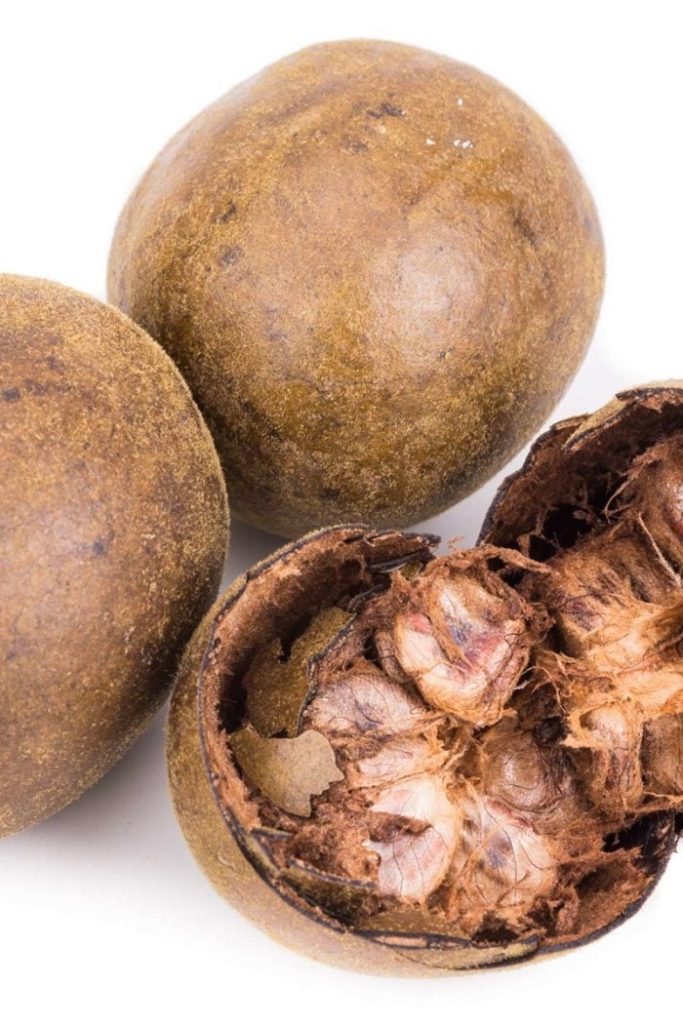Last Updated on February 28, 2025
Monk fruit is generally safe for dogs in small amounts. Large quantities could cause digestive upset.
Monk fruit, a natural sweetener, is becoming popular as a sugar substitute. Many pet owners wonder if it’s safe for their dogs. While monk fruit is non-toxic to dogs, moderation is key. Small amounts are usually safe, but consuming large quantities could lead to digestive issues like diarrhea or upset stomach.
Always consult your veterinarian before introducing new foods or sweeteners to your dog’s diet. Some dogs may have individual sensitivities, so observing their reaction is important. Understanding what foods are safe for pets ensures their health and well-being.
Monk Fruit Sweetener: What Is It?

Monk fruit sweetener is gaining popularity as a sugar substitute. It is often touted as a healthier option. But what exactly is monk fruit sweetener? Let’s dive into its origins and composition and its role in human diets.
Origins And Composition
Monk fruit, also known as luo han guo, originates from southern China. This small green melon has been used for centuries in traditional Chinese medicine.
The sweetener is derived from the fruit’s extract. The extract contains compounds called mogrosides, which are intensely sweet. Unlike sugar, microsites have no calories and do not raise blood sugar levels.
Monk fruit sweetener is often found in liquid, powder, or granule forms. It is usually mixed with other ingredients to balance its sweetness.
| Component | Description |
|---|---|
| Mogrosides | Sweet compounds with no calories |
| Fruit Extract | Derived from monk fruit |
| Additional Ingredients | Used to balance sweetness |
Popularity In Human Diets
Monk fruit sweetener is widely used in various diets. Its appeal lies in its zero-calorie content and low glycemic index.
Many people use it to sweeten beverages, baked goods, and even savory dishes. It suits various dietary needs, including keto, diabetic, and low-carb diets.
- Zero calories
- Low glycemic index
- Suitable for keto, diabetic, and low-carb diets
Monk fruit sweetener is often praised for its lack of aftertaste. This makes it a preferred choice over other artificial sweeteners.
Here is a quick comparison with other sweeteners:
| Sweetener | Calories | Glycemic Index | Aftertaste |
|---|---|---|---|
| Monk Fruit | 0 | 0 | No |
| Stevia | 0 | 0 | Yes |
| Sugar | 16 per tsp | 65 | No |
Understanding monk fruit sweeteners helps in making informed dietary choices. Always consult your vet before introducing new foods to your dog’s diet.
Canine Health And Sweeteners
Dogs love to taste what we eat, including sweet treats. But not all sweeteners are safe for them. Knowing which sweeteners are safe can protect your dog’s health.
Typical Sweeteners And Dog Safety
Many sweeteners are in our food. Some are safe for dogs, while others are not. Here is a table showing common sweeteners and their safety for dogs:
| Sweetener | Safe for Dogs? |
|---|---|
| Sugar | In moderation |
| Xylitol | No, it’s toxic |
| Aspartame | No |
| Stevia | Yes, in small amounts |
| Monk Fruit | Yes, in small amounts |
The Impact Of Natural Sweeteners On Dogs
Natural sweeteners like stevia and monk fruit are often safer than artificial ones. Yet, not all natural sweeteners are the same. Let’s look at the impact of common natural sweeteners on dogs.
- Stevia: Stevia is safe in small amounts. Large amounts can cause diarrhea.
- Monk Fruit: Monk fruit is generally safe. It does not spike blood sugar.
- Honey: Honey is safe but high in sugar. It should be given sparingly.
- Maple Syrup: Maple syrup is safe but also high in sugar. It should be limited.
Always check with your vet before giving your dog any new food. It’s better to be safe and protect your dog’s health.
Monk Fruit And Dogs: Safety Concerns
Many pet owners wonder if monk fruit is safe for dogs. Monk fruit, a natural sweetener, is often used in human foods. But is it safe for our furry friends? Let’s explore the safety concerns of monk fruit for dogs.
Veterinary Insights On Monk Fruit
Veterinarians have mixed opinions about monk fruit. Some believe it is safe in small amounts. Others worry about unknown effects. Always consult your vet before giving new foods to your dog.
| Veterinarian | Opinion |
|---|---|
| Dr. Jane Doe | Safe in moderation |
| Dr. John Smith | Potential risks |
Alternatives To Monk Fruit For Dogs
If you’re concerned about monk fruit, consider these alternatives:
- Honey: Natural and safe in small amounts.
- Carrots: Sweet and crunchy, dogs love them.
- Apples: A tasty treat, but remove seeds.

Frequently Asked Questions
What Sweetener Is Toxic To Dogs?
Xylitol is toxic to dogs. This artificial sweetener can cause rapid insulin release, leading to hypoglycemia, liver failure, or even death. Always check food labels and keep xylitol away from pets.
Is Monk Fruit With Erythritol Safe For Dogs?
Monk fruit with erythritol is generally safe for dogs. However, always consult your vet before introducing new foods.
What Are The Negatives Of Monk Fruit?
Monk fruit may cause digestive issues in some people. It can be expensive and hard to find. Some products contain additives.
Can Animals Eat Monk Fruit?
Most animals can eat monk fruit in small amounts. Monk fruit is non-toxic but may cause digestive issues if consumed excessively. Always consult a vet before introducing new foods to your pets.
Is Monk Fruit Safe For Dogs?
Monk fruit is generally safe for dogs in small amounts.
Conclusion
Monk fruit can be safe for dogs in moderation. Always consult your vet before introducing new foods. Monitor your dog for any adverse reactions. Prioritize your pet’s health and well-being by staying informed. By taking these steps, you can ensure your furry friend remains happy and healthy.

